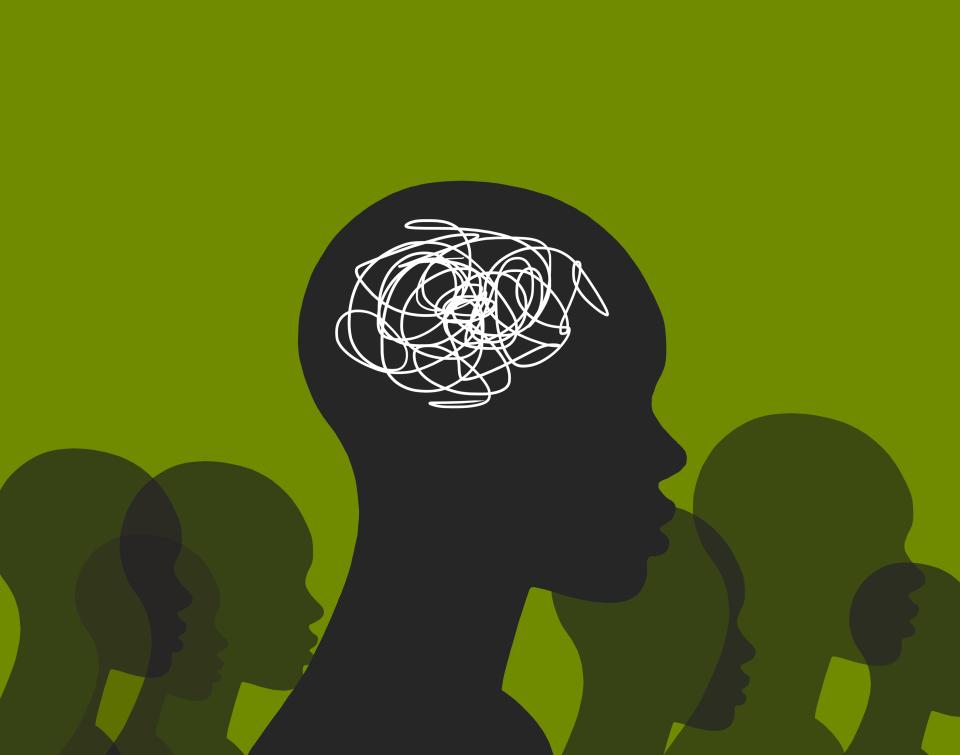Dedicated Mental Health Services Designed for Holistic Care
Dedicated Mental Health Services Designed for Holistic Care
Blog Article
Comprehensive Inpatient Mental Health Providers for Effective Treatment
Inpatient psychological health and wellness solutions represent a crucial element of the medical care system, offering a organized and intensive atmosphere for people experiencing severe mental distress. These solutions employ a multidisciplinary method, incorporating numerous evidence-based therapies to attend to the intricate needs of clients. Nonetheless, the effectiveness of such extensive treatment expands beyond immediate stabilization; it likewise incorporates the transition to outpatient support, an important stage often neglected. Exploring the nuances of this continuum reveals significant implications for both individual recovery and broader mental wellness end results. What variables absolutely affect this change, and just how can we improve its efficiency?
Understanding Inpatient Mental Wellness Providers
Inpatient mental health and wellness services offer essential assistance for individuals experiencing extreme mental distress that can not be managed properly in an outpatient setup. These services are made to use an intensive degree of care in an organized atmosphere, often within a health center or specialized center. Patients confessed to inpatient programs generally present severe symptoms, such as suicidal ideation, extreme anxiety, or psychosis, necessitating day-and-night monitoring and intervention.
The admission procedure generally entails a comprehensive analysis by psychological health and wellness professionals, that assess the person's psychological state, background, and immediate requirements. As soon as admitted, people take part in a range of healing modalities customized to their details demands, consisting of drug management, private treatment, and group sessions. This alternative strategy aims to stabilize the individual's problem, promote safety, and foster coping skills.
Inpatient psychological wellness services not only address instant wellness problems but likewise offer as a bridge to recurring treatment. By providing a controlled atmosphere, these solutions promote the growth of treatment plans that can be proceeded in outpatient settings, thus making sure a continuum of treatment and boosting lasting end results for people with intricate psychological health needs.
Key Components of Effective Treatment
Effective treatment in inpatient mental health services comprises several essential elements that promote healing and stabilization. A detailed evaluation is vital to identify the individual's specific demands and obstacles. This evaluation notifies the development of a customized therapy strategy, which functions as a roadmap for intervention.
An additional important element is the multidisciplinary team approach. Cooperation amongst psychoanalysts, psycho therapists, nurses, and social workers makes certain that numerous point of views contribute to the person's treatment, enhancing the effectiveness of therapy. Evidence-based therapeutic methods, such as cognitive-behavioral treatment (CBT) and dialectical behavior treatment (DBT), are likewise integral, giving structured techniques that attend to maladaptive thought patterns and behavior problems.

Lastly, an emphasis on aftercare planning is essential to make certain a smooth transition to outpatient solutions, reducing the risk of regression and promoting lasting wellness. These cumulative elements create an efficient treatment structure within inpatient mental wellness services.
Advantages of Comprehensive Care

Extensive treatment in inpatient psychological health services uses countless benefits that considerably boost person outcomes. One of the main benefits is the all natural approach to treatment, dealing with not only the mental signs and symptoms yet also the physical, social, and emotional needs of clients. This detailed assessment allows for tailored interventions that promote overall well-being.
Another benefit is the integration of multidisciplinary teams, which promotes partnership among health care experts. This collective atmosphere guarantees that clients get collaborated treatment, minimizing the danger of fragmented treatment and enhancing communication among caretakers. In addition, thorough treatment assists in connection of services, enabling seamless shifts from inpatient to outpatient setups, which is critical for lasting healing.

Last but not least, the organized atmosphere of detailed inpatient treatment offers a risk-free space for clients to take part in therapeutic tasks, aiding them establish coping techniques and resilience. Jointly, these advantages contribute to much more effective therapy and boosted high quality of life for individuals experiencing mental wellness dilemmas.
Evidence-Based Therapeutic Approaches
In the world of psychological health and wellness treatment, evidence-based healing techniques play a critical function in guaranteeing that patients obtain efficient and scientifically sustained interventions. These approaches incorporate the most effective available research study with web medical proficiency and person values, fostering a customized treatment experience that attends to individual demands.
Cognitive Behavioral Treatment (CBT) is one of the most commonly identified evidence-based methods, concentrating on recognizing and changing unfavorable idea patterns and actions. This structured method has actually shown efficacy in treating conditions such as depression, ptsd, and stress and anxiety. In A Similar Way, Dialectical Behavior Modification (DBT) is especially efficient for individuals with borderline character condition, stressing the growth of psychological regulation and interpersonal effectiveness skills.
Additionally, drug monitoring is often an integral component of evidence-based treatment, as psychotropic medications can alleviate signs and symptoms and boost total functioning. Joint treatment designs, which involve multidisciplinary teams, further boost the efficiency of inpatient services by guaranteeing comprehensive evaluations and continual tracking.
Eventually, the integration of evidence-based healing strategies not only promotes favorable scientific outcomes but additionally equips patients, cultivating a sense of agency and strength in their mental health trips.
Transitioning to Outpatient Support
The change from inpatient mental health solutions to outpatient assistance notes a crucial stage in an individual's recovery trip. This duration needs careful preparation and coordination to guarantee connection of care and to mitigate the risks of relapse or dilemma. Efficient discharge preparation ought to start early in the inpatient stay, entailing a multidisciplinary team that consists of psychiatrists, psycho therapists, registered nurses, and social workers.
Crucial element of an effective transition consist of the growth of a detailed aftercare strategy tailored to the person's specific requirements. This strategy should detail follow-up consultations, medicine monitoring, and therapeutic interventions, in addition to recognize community sources and assistance groups that can assist in recurring recovery.
Furthermore, person and family education is crucial throughout this stage. Understanding the indications of possible troubles and the importance of adhering to therapy can encourage people and their support systems.
Regular follow-up and reassessment of the outpatient plan are vital to address evolving challenges. By promoting a collective connection in between outpatient and inpatient providers, the possibility of sustained healing boosts, eventually improving the individual's high quality of life click for more info and minimizing the threat of readmission.

Final Thought
In summary, extensive inpatient mental health services provide a vital structure for attending to serious mental distress with a multidisciplinary method. Eventually, such extensive care is important for long-term mental wellness and health.
The admission procedure normally includes an extensive assessment by mental wellness specialists, that assess the individual's psychological state, background, and instant needs.Effective therapy in inpatient psychological health and wellness services consists of numerous key parts that promote recovery and stablizing.Thorough care in inpatient mental wellness services offers countless advantages that substantially enhance person results.The transition from inpatient psychological health and wellness services to outpatient assistance marks a critical stage in a client's recuperation journey.In summary, detailed inpatient mental helpful site wellness services supply a vital framework for attending to severe emotional distress through a multidisciplinary strategy.
Report this page